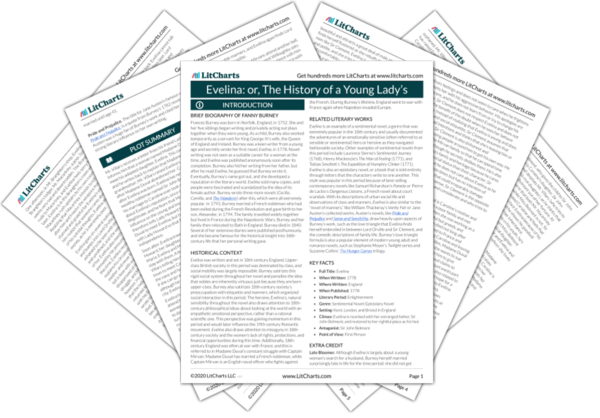Evelina does not want to be left with Madame Duval because she senses that Madame Duval will attempt to lead her astray and corrupt her, rather than guide her to behave in a moral way. Positive moral examples are extremely important to young, impressionable people like Evelina, and a bad influence can have destructive effects. Since Evelina has been raised by Mr. Villars, a positive role model, she is already able to sense that Madame Duval is trouble, even though she is innocent and inexperienced.
